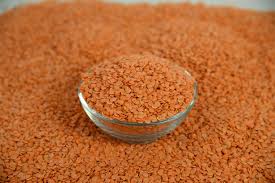Assured MSP purchase of pulses to aid crop diversification
By Sandip Das
The government has got over 6.4 million farmers registered across states on the digital platforms for providing assured input support and buyback of the commodities at minimum support price (MSP).
Two state-run agencies – Nafed and NCCF – have so far registered 3.8 million and 2.6 million farmers respectively. The move is aimed at boosting production of pulses varieties – tur, masur and urad – and reduce country’s import dependence and increasing output of maize for ethanol production,
The initiative commenced prior to the kharif season of last year.
Currently, Nafed and NCCF pre-register farmers on their portals – e-Samriddhi and e-Samyukti respectively on the basis of aadhaar authentication prior to procurement of pulses and maize.
The government has assured to procure 100% of the pulses varieties at MSP under the price support scheme (PSS) of the agriculture ministry. The existing procurement ceiling of 25% on tur, urad and masur under PSS had been lifted for 2023-24 and 2024-25 seasons
The agencies procure harvested pulses at the MSP, but farmers can sell to private traders if market prices exceed the MSP. “We are trying to provide spot registration of farmers on the portal to expand the outreach of the government’s procurement programme,” Anice Joseph Chandra, managing director, NCCF told FE.
NCCF has registered 1.3 million farmers across 29 states for maize procurement while over 1.6 million farmers have enrolled for pulses procurement. The cooperative is also enaged in distribution of maize to distilleries.
The initiative, focusing on non-traditional pulse, oilseeds and maize growing regions including Uttar Pradesh, Jharkhand and Bihar, where agencies provide quality seeds and ensure that produce meet the fair and average quality standards for buy back.
So far, Nafed and NCCF have purchased 0.36 million tonne (MT) and 0.16 MT of tur in the ongoing 2024-25 season respectively, from the farmers mostly in Maharashtra, Karnataka, Gujarat and Andhra Pradesh at MSP. This is the highest volume of tur purchase since 2019-20.
Meanwhile, the agriculture ministry has made biometric face authentication and use of point of sale (PoS) machines mandatory for MSP purchases of pulses and oil seeds from the next kharif 2025-26 season.
The move is intended to ensure that only genuine farmers get the benefit of procurement under various schemes.
In a communication to Nafed and NCCF, the agriculture ministry has urged them to integrate their portals used for registration of farmers with the ministry’s unified portal on agricultural statistics (UPAg) and upload procurement of oilseeds and pulses on a real time basis.
In the last five years ending FY25, India has imported 12% — 15% of its annual pulses consumption mostly from Canada, Russia, Australia, Myanmar, Tanzania, Malawi and Mozambique.
“Decline in production during the last two years and increase in domestic demand led to significant increase in market prices and imports reached at 6-year peak of nearly 4.8 MT in 2023-24,” according to the report on price policy for rabi crops for marketing season (2024-25) by the Commission for Agricultural Costs and Prices (CACP).
PSS, a component of PM-AASHA is implemented when the market prices of notified pulses and oilseeds and copra fall below the MSP during peak harvesting period to provide the remunerative price to the farmers.
This article has been republished from The Financial Express.

